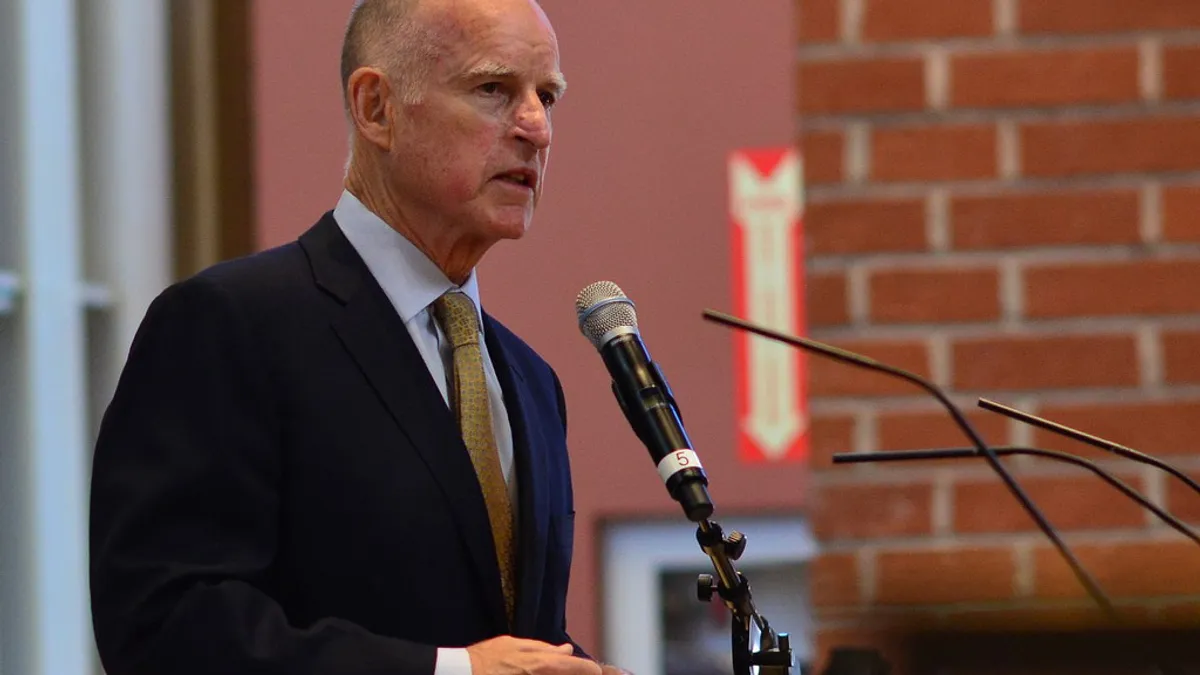Dive Brief:
- California Gov. Jerry Brown signed an executive order to get 5 million ZEVs on the road in California by 2030 — a significant jump from the 350,000 ZEVs currently on the state's roads.
- Brown's administration also proposed a $2.5 billion plan to extend subsidies for zero-emissions vehicles (ZEV) and expand the state's vehicle charging station network from 14,000 EV charging stations and 31 hydrogen fueling stations to 250,000 charging stations and 200 hydrogen stations. This plan still requires legislative approval.
- In addition to the order, the governor detailed the 2018 California Climate Investments plan, which will invest $1.25 billion in cap-and-trade auction proceeds "to reduce carbon pollution and improve public health and the environment."
Dive Insight:
These initiatives, announced during the governor's State of State address, strengthen California's position as a ZEV leader. The state already has one of the largest ZEV car markets in the world — thanks to a 1,300% increase in the number of ZEVs on the road over the past six years — which accounts for about 5% of all new car sales in the state.
Brown's new proposal will require ZEVs to account for 40% of all new car sales by 2030, which is a "reasonable" goal, according to Mary Nichols, chairwoman of the California Air Resources Board. Some may consider it much more reasonable than Assemblyman Phil Ting's proposal requiring ZEVs to account for 100% of all new cars registered in California after Jan. 1, 2040, though that proposal is still active in the California legislature.
According to a new report from think tank Next 10, Brown's lofty ZEV goals are attainable, as long as charging infrastructure can keep pace. "Barriers such as inadequate infrastructure could slow progress, but our report shows that by 2040, ZEVs could be as ubiquitous as smartphones are today," said Next 10 founder F. Noel Perry in a statement.
As Brown enters his final year in office, he will continue to push the state into the environmental spotlight. In September, the state will host the Global Climate Action Summit in San Francisco in an effort to "roll back the forces of carbonization" and support the Paris Agreement in the fight against climate change, despite conflicting efforts from the Trump administration.












